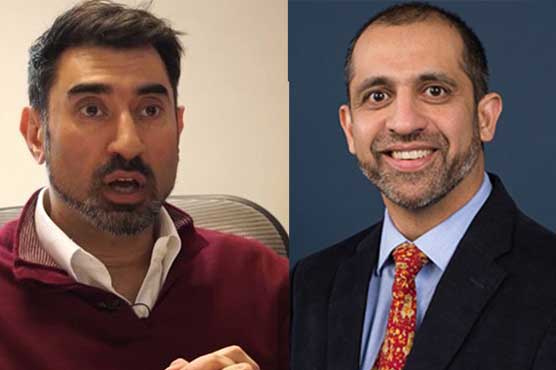Pakistan has once again lost the opportunity to benefit from the potential of its diaspora and also made itself a mockery in front of the world. The case of Prof Atif Mian’s appointment to the Economic Advisory Council (EAC) and then making him resign only exposes Pakistan’s bigotry problem.

Dr Atif Mian, a Princeton University Professor for Economics, Public Policy and Finance known for his work on finance and macro-economics, was nominated to Prime Minister Imran Khan’s Economic Advisory Council (EAC) but later his name was withdrawn because he happens to be a member of the Ahmadiyya sect, which Pakistan’s mullahs (& the country’s constitution) describe as non-Muslim. Ahmadis are widely discriminated against in Pakistan and are targets of persecution.
 The real tragedy in this saga is that Imran Khan’s government could have anticipated the reaction of the Islamists and their followers and if he and his advisors did not have the guts to face it then they should not have created the controversy involving a good man & a world-renowned economist. Prof Atif Mian did not need or want the position. Pakistan would have benefitted from having his expertise. Following Prof Mian’s resignation, two other Pakistani-origin economists, Asim Khwaja from Harvard University and Imran Rasul from UK have also resigned.
The real tragedy in this saga is that Imran Khan’s government could have anticipated the reaction of the Islamists and their followers and if he and his advisors did not have the guts to face it then they should not have created the controversy involving a good man & a world-renowned economist. Prof Atif Mian did not need or want the position. Pakistan would have benefitted from having his expertise. Following Prof Mian’s resignation, two other Pakistani-origin economists, Asim Khwaja from Harvard University and Imran Rasul from UK have also resigned.

In the words of lawyer and human rights activist Yasser Latif Hamdani, “The unceremonious removal of Princeton economist Atif Mian by PM Imran Khan shows the end of meritocracy in Pakistan. Atif Mian, the great Princeton economist who was unceremoniously removed from his position on Imran Khan government’s Economic Advisory Council, is not the one who lost out. It is Pakistan’s loss.” In his latest piece the ‘Insulting removal of Princeton prof shows Pakistan has forgotten Jinnah’s view on Ahmadis,’ Hamdani gives the long list of “Ahmadis who tried to serve Pakistan but were murdered in cold blood.” “The downward graph of Pakistan has interestingly followed Ahmadis’ marginalisation. This is not because Ahmadis are the only ones talented but because their marginalisation has also meant the end of meritocracy in Pakistan. Pakistan will continue to lose unless it reverts to Jinnah’s wise words that religion caste or creed has nothing to do with the business of the state.”
The Human Rights Commission of Pakistan also released a statement that ‘Faith no criterion for public service.’ According to HRCP: “There is overwhelming evidence to show that Dr Mian was eminently qualified to serve on the EAC and that his contribution to economic policy making in Pakistan would have been immensely valuable. The government’s decision to withdraw this nomination on the grounds that it might prove divisive – merely because he happens to belong to the Ahmadiyya community – contravenes Article 27(1) of the Constitution of Pakistan, which clearly states that ‘no citizen otherwise qualified for appointment in the service of Pakistan shall be discriminated against in respect of any such appointment on the ground only of race, religion, caste, sex, residence or place of birth.”
Further, “The withdrawal of Dr Mian’s nomination does not augur well. The spate of faith-based attacks this year, not only on the Ahmadiyya community, but also on the Christian, Shia Hazara and Hindu communities, should make it clear that any steps by the state that are seen to legitimize religious discrimination are unacceptable. Defending human rights is necessarily a question of moral courage and HRCP strongly urges the government to avoid any sort of precedent that allows a person’s faith to trump all other criteria for public service.”
![]()





